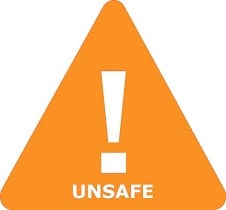Is Isotretinoin Safe in Breastfeeding
Question
I am a breastfeeding mother and i want to know if it is safe to use Isotretinoin? Is Isotretinoin safe for nursing mother and child? Does Isotretinoin extracts into breast milk? Does Isotretinoin has any long term or short term side effects on infants? Can Isotretinoin influence milk supply or can Isotretinoin decrease milk supply in lactating mothers?
Isotretinoin lactation summary

- DrLact safety Score for Isotretinoin is 5 out of 8 which is considered Unsafe as per our analyses.
- A safety Score of 5 indicates that usage of Isotretinoin may cause serious side effects in breastfed baby.
- Our study of different scientific research indicates that Isotretinoin may cause moderate to high side effects or may affect milk supply in lactating mother.
- Our suggestion is to use safer alternate options rather than using Isotretinoin .
- It is recommended to evaluate the advantage of not breastfeeding while using Isotretinoin Vs not using Isotretinoin And continue breastfeeding.
- While using Isotretinoin Its must to monitor child for possible reactions. It is also important to understand that side effects vary largely based on age of breastfed child and time of medication in addition to dosage.
- Score calculated using the DrLact safety Version 1.2 model, this score ranges from 0 to 8 and measures overall safety of drug in lactation. Scores are primarily calculated using publicly available case studies, research papers, other scientific journals and publically available data.
Answer by Dr. Ru: About Isotretinoin usage in lactation
Retinoid which is a synthetic derivative of vitamin A. It is a cis-configuration of Tretinoin, an acid form of vitamin A.Indicated in the treatment of severe forms of acne. At latest update no published data on excretion into breast milk were found. Despite of a high plasma protein-binding capacity, it is a highly lipophilic substance, hence, it is presumed to accumulate in breastmilk. The natural form of vitamin A is readily excreted into breastmilk. In addition to being a potent teratogen (Shirazi 2015), which affects pregnancy, it has been shown to decrease all pituitary hormones levels (Karadag 2011 and 2015) along with other potential serious side effects associated to the use of Isotretinoin. It may cause galactorrhea (Larsen 1985). A safer alternative should be preferred until more published data on this drug related to breastfeeding is available, especially during the neonatal period and in case of prematurity.
Answer by DrLact: About Isotretinoin usage in lactation
No information is available on the use of isotretinoin during breastfeeding. Various topical agents that are less likely to be absorbed by the mother may be preferred during breastfeeding, especially while nursing a newborn or preterm infant.
Isotretinoin Possible Effects in Breastfeeding
A woman who had weaned her infant 18 months previously developed a nipple discharge from her right breast after 5.5 months of therapy with isotretinoin. Microbiological, hormonal (including prolactin), radiologic, and physical examinations were otherwise normal. One month after discontinuing isotretinoin, the discharge ceased. After isotretinoin was reinstituted at the same dose, the discharge reappeared within 10 days.[1] The galactorrhea was probably caused by isotretinoin. A review of adverse reaction reports on retinoids causing a breast reaction submitted to a French pharmacovigilance center found 22 cases of gynecomastia was associated with isotretinoin use. Fourteen of the cases were gynecomastia, 6 were galactorrhea and 2 were of both gynecomastia and galactorrhea. Gynecomastia and/or galactorrhea was unilateral for almost half of the reported retinoid cases. The median time of onset was 90 days (IQR 39 to 347 days). The outcome was known for 27 of 31 patients and a total recovery after withdrawal of retinoid was observed for 63% of them.[2]
Alternate Drugs
Infliximab(Safe)
Miconazole(Safe)
Calcipotriene(Safe)
Ketoconazole(Safe)
Secukinumab(Low Risk)
Erythromycin(Low Risk)
Tacrolimus(Safe)
Dimethyl fumarate(Low Risk)
Neomycin(Safe)
Tioconazole(Safe)
Etanercept(Safe)
Sulconazole(Safe)
Salicylic Acid(Safe)
Dexamethasone, Topical(Low Risk)
Pimecrolimus(Low Risk)
Oxiconazole(Safe)
Hydroquinone(Low Risk)
Butoconazole(Safe)
Benzoyl Peroxide(Safe)
Tazarotene(Low Risk)
Azelaic Acid(Safe)
Ustekinumab(Low Risk)
Adapalene(Safe)
Adalimumab(Safe)
Isotretinoin(Unsafe)
Glycolic Acid(Safe)
Salicylic Acid(Safe)
Tazarotene(Low Risk)
Isotretinoin(Unsafe)
Glycolic Acid(Safe)
Acitretin(Unsafe)
Isotretinoin(Unsafe)
Acitretin(Unsafe)
